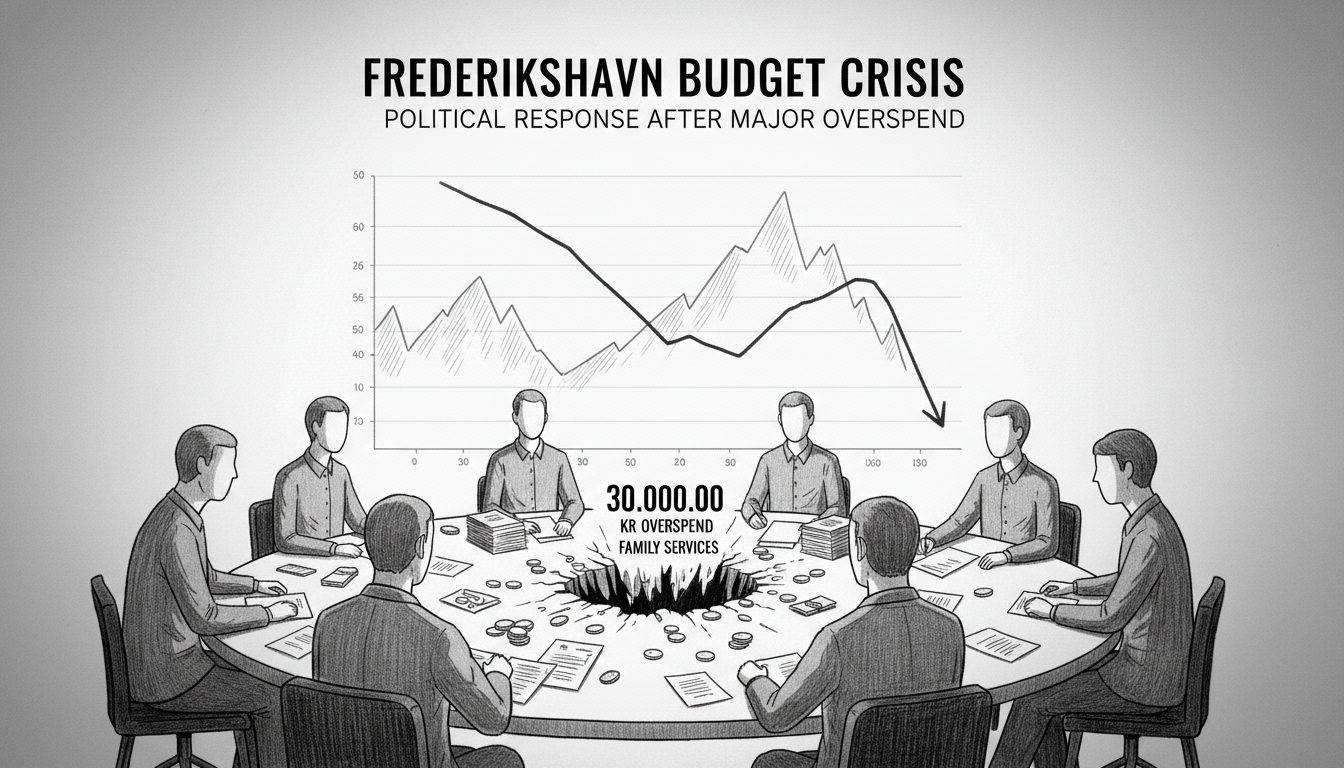A budget report has sent shockwaves through Frederikshavn's city hall. The family services department faces a 30 million kroner budget overrun in coming years. This surprise development comes just after politicians approved a budget agreement they believed was financially sound.
The budget overrun prompted emergency meetings among all political parties on Thursday. Parties behind the budget agreement have decided to work together on finding a solution. They want to determine responsibility for the financial shortfall.
Budget agreement parties will conduct a thorough review of the department. They plan to complete an in-depth analysis before year's end. This report will identify causes and assign responsibility for the financial issues.
The preliminary report to politicians indicates inadequate internal controls and follow-up procedures. Parties want to address this problem seriously and implement corrections.
This situation reveals common challenges in Danish municipal budgeting. Danish municipalities operate with considerable autonomy in budget management. They face constant pressure to deliver services while maintaining financial discipline.
The 30 million kroner shortfall represents substantial funds for a municipality of Frederikshavn's size. This amount could fund multiple social programs or infrastructure projects. The overrun suggests either poor forecasting or unexpected service demands.
Seven political parties stand behind the budget agreement. These include Social Democrats, Venstre, Conservative People's Party, Socialist People's Party, Danish People's Party, Denmark Democrats, and Moderates. Their united response shows the seriousness of the situation.
Danish municipal budgeting follows strict national guidelines. Municipalities must balance their budgets under normal circumstances. Significant overruns require explanation and corrective action.
The family services department handles critical social functions. These include child protection, family support, and youth services. Budget problems here could impact vulnerable residents directly.
Internal control failures raise questions about oversight mechanisms. Proper financial controls should detect potential overruns earlier. The delayed discovery suggests systemic monitoring issues.
International readers should understand Danish municipal structure. Denmark divides into 98 municipalities managing most local services. They collect taxes and receive state subsidies while operating independently.
This incident mirrors challenges faced by other Nordic municipalities. Rising service demands often outpace budget projections. Social services particularly face increasing cost pressures.
The political unity demonstrates cross-party concern about fiscal responsibility. All parties recognize the need for financial stability. Their coordinated response aims to restore public confidence.
What happens next? The detailed report will likely recommend procedural changes. These may include better monitoring systems or staffing adjustments. The municipality must then implement these changes while managing the financial shortfall.
The situation shows that even careful budget planning can encounter unexpected challenges. Municipal governments worldwide face similar balancing acts between service delivery and fiscal responsibility.

